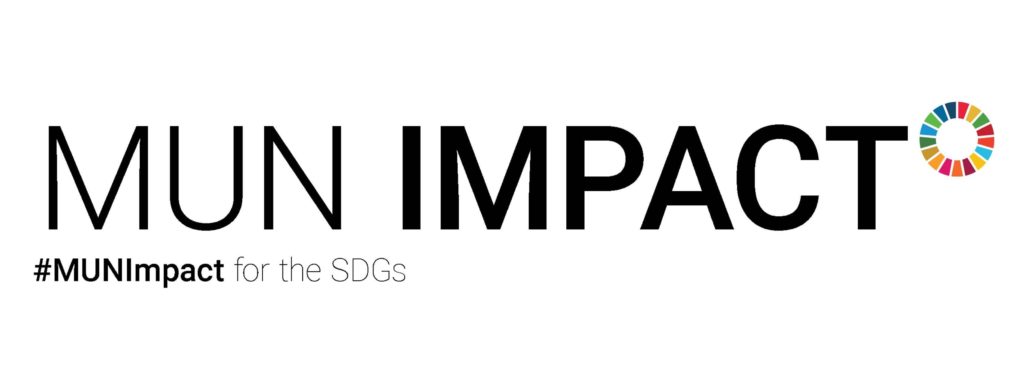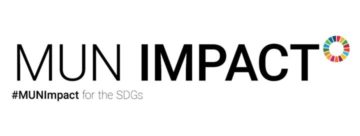BY THUSHAARA PRASANNA, STAFF REPORTER
SDG’s or the Sustainable Development Goals or also known as the Global Goals are a cluster of 17 Goals which are planned to be achieved by the year 2030 for a safe, happier, better and ofc, a sustainable environment for all the people who are living in this world and for the upcoming generations too.
SDG 13 which is commonly known as the Goal for Climate Action is one of the 17 Sustainable Development Goals which mainly concentrates on the goal to reduce the Global Warming well below 1.5 degree celsius. To achieve this temperature goal, countries come together to reach the Global Peak of greenhouse gas emissions promptly to attain a climate neutral world by the mid-century. The official wording for the SDG 13 are as follows:
“Take urgent action to combat climate change and its impacts”
To accomplish the Goal of Climate Action, the UN has defined 5 Targets and 8 Indicators for the SDG 13.
On the other hand, SDG 15 which is known as the Goal which is mainly concerned with the Life on Land and is too one of the 17 Sustainable Development Goals with the aim to call for an urgent action to halt the degradation of natural habitats, to end the poaching and trafficking of animals, and to integrate ecosystem and biodiversity values into local planning and development processes. The Official wording for the SDG 15 are as follows:
“Protect, Restore and Promote sustainable use of terrestrial ecosystems, sustainably manage forests, combat desertification, halt and reverse land degradation and halt biodiversity loss.”
To accomplish the Goal of Life on Land, the UN has defined 12 Targets and 14 Indicators for the SDG 15.
We have with the amazing 4 Speakers for this event:
- Tasneem Essop
- Amy Wickham
- Giulia Jacovella
- Christian Schwarzer
So, let’s have a short introduction about all of the amazing speakers…
- Tasneem Essop:
Tasneem Essop is the Head of Strategy and Advocacy for the International World Wide Fund for Nature’s (WWF) Global Climate and Energy Initiative, and leads the global climate team at the United Nations Framework Convention on Climate Change (UNFCCC) sessions.Prior to joining WWF she held the positions of Provincial Minister for the Environment, Planning and Economic Development in Western Cape and Provincial Minister of Transport, Public Works and Property Management.In these portfolio’s she was also the Co-Chair of the global Network of Regional Governments on Sustainable Development (NRG4SD) and the Leader of Government Business for the Provincial Development Council in the Western Cape. She also chaired the Association of Public Accounts Committees and was the Spokesperson for Finance and Public Accounts in the Legislature for the African National Congress. She was also the Education Officer for the Congress of Trade Unions (COSATU) in the Western Cape and Education and Media Officer for the South African Municipal Workers Union (SAMWU).She has piloted a number of new policies for the Western Cape province during her tenure as Provincial Minister, such as the Provincial Spatial Development Framework (PSDF), and Polo Estates and the Mobility Strategy that included the Bus Rapid Transit System and non-motorized transport. She has lectured and written, internationally and domestically, about the impacts of climate change especially on the poor, and, more recently, has become a strong advocate for reaching a multilateral agreement on climate change within the UNFCCC.
- Amy Wickham
Amy Wickham is a Programme Specialist on Climate, Energy and Environment. She has worked at UNICEF Zimbabwe, UNICEF Mongolia and is now based at UNICEF HQ in New York and has even worked with international organizations in South Asia, Europe and Africa. She has contributed articles to the UNICEF blog. “In her role as Climate Change Officer at UNICEF Zimbabwe, Ms. Amy Wickham has been supporting the National Climate and Energy Policy developments, mainstreaming environmental sustainability across UNICEF, conducting office GHG emission inventories (2013/14), while also developing mechanisms to reduce these emissions.” said Global Alliance for Clean Cooktops.
3. Giulia Jacovella:
Giulia is a multi-faceted, efficient and reliable policy and communication expert with over 6 years of professional experience in Senegal, Guatemala, Nicaragua and the UK. Since 2013, she has been working for organisations promoting resource governance, rural development, food and energy security, human rights and gender equality and equity. She is currently based in New York, where she works as a Youth and Climate Analyst at the United Nations Development Programme (UNDP).
Her diversified skill set covers research, monitoring and evaluation, stakeholder relations, writing, editing, graphic design and project management. She has excellent interpersonal, communication and analytical skills. She is fluent in English, Italian, Spanish and French. Giulia holds a master degree in Environmental Law and Sustainable Development from SOAS University (UK) and a BA in Politics, Philosophy and Economics from LUISS University (Italy).
4.Christian Schwarzer:
Christian is one of the founders of GYBN and has dedicated most of his life towards environmental issues. In recognition of his activities on Biodiversity, he has been appointed as Youth Ambassador for the UN Decade on Biodiversity. He is a member of NAJU and Co-Chair of Germany’s NGO working group on Biodiversity policy. Christian is currently studying for a double major in History and Political Science. His main research interest lies on Global Environmental Governance. So far he has participated in 21 rounds of UN negotiations under the UNFCCC, IPBES and the CBD and published numerous articles and studies on environmental policy issues

